Adverb of Reason / Purpose
An adverb of reason modifies the verb, adjective or another adverb to explain why something is done. For example, “I am writing this post because…
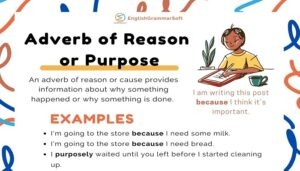
An adverb of reason modifies the verb, adjective or another adverb to explain why something is done. For example, “I am writing this post because…

An adverb of manner tells us how something is done. It answers the question “how?”. Some common adverbs of manner are quickly, carefully, and loudly….

An adverb of degree modifies the intensity of a verb, adjective or adverb. It is usually placed after the word it modifies. Some common adverbs…
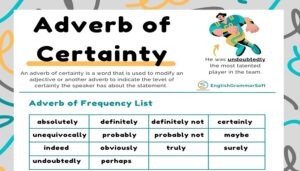
When you are certain about something, you use an adverb of certainty. This shows that you are sure of what you are saying. For example,…
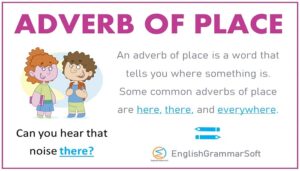
Adverb of Place An adverb of place tells us where something is happening. It can answer the questions “Where?” or “Whereabouts?” Common adverbs of place…
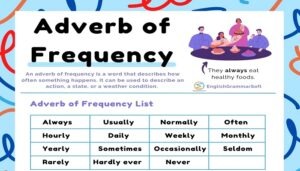
An adverb of frequency tells how often something happens. It can be used to describe an action, a state, or a condition. Some common adverbs…
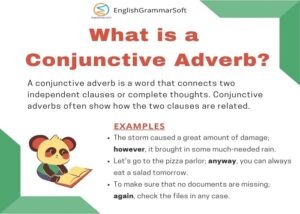
A conjunctive adverb is a word that connects two independent clauses or complete thoughts. Conjunctive adverbs often show how two clauses are related. For example,…
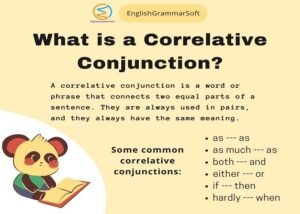
What is a Correlative Conjunction? A correlative conjunction is a word or phrase that connects two equal parts of a sentence. They are always used…
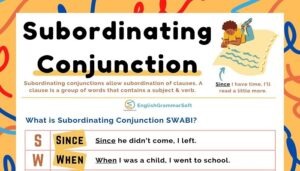
The subordinating conjunction introduces a dependent clause and changes the meaning of the sentence. In most cases, it shows that one event is happening because…

The adjective of quality describes a person or thing with positive or negative characteristics. This sense is much different from the adjectives that describe how…